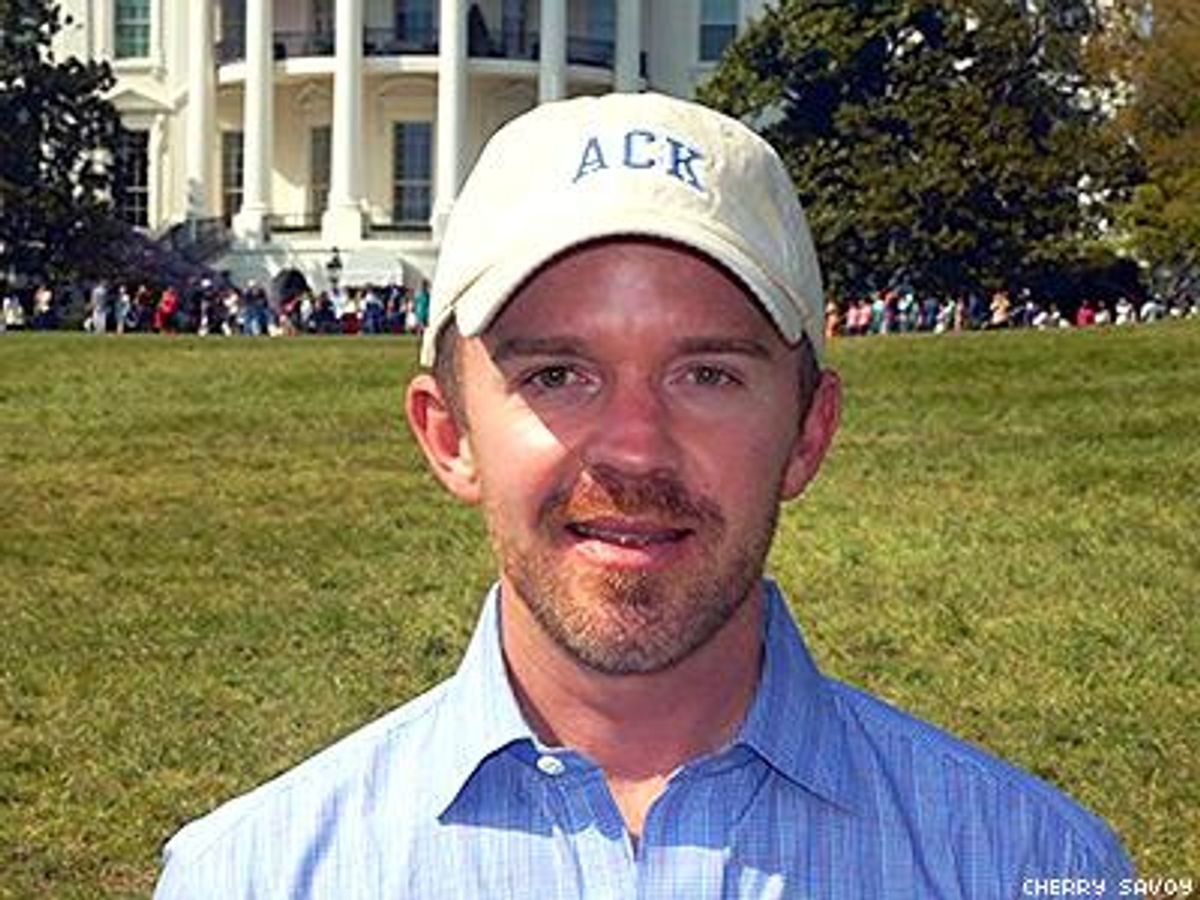Watching marriage equality unfold, slowly at first and then like a tidal wave, has been one of the greatest experiences of my life. Two years ago I camped outside the Supreme Court for the oral arguments and decisions in the Proposition 8 and Defense of Marriage Act cases. There was so much anxiety among the assembled campers and the large crowd that came to rally. At the time, 14 states and the District of Columbia recognized same-sex marriage and public opinion bordered on a majority of the nation being supportive.
When we were assembled in the court chamber for the decisions, all we could do is hold hands and shed tears of happiness as Justice Kennedy read his incredibly strong opinion in overturning a key provision of DOMA. The celebrations following that made it clear that everything had just changed. We knew victory was within grasp.
When I arrived to camp out at the Supreme Court Monday night, I found the experience to be calmer, yet with many more people involved. I actually was able to sleep, which did not happen at all the two years earlier. Now 37 states and the District of Columbia have marriage equality, and public approval of same-sex marriage reached 63 percent in a recent CNN poll. We knew victory was within our grasp.
Even with the much calmer experience, there was an excitement in the air. Spending the night in line at the Supreme Court is an experience. Each time I've done it, three times in 2013 and for the fourth time this week, I have forged bonds with others who share a passion for being an active participant in history. It is one of the more meaningful aspects of the experience. This year I was surrounded by college students from American University and George Mason University. One of the students was also joined by his father, who shared equally in our excitement.
As day broke, the crowd started to swell. The antigay folks showed up with big signs and megaphones. However, the opposite side showed up to rally for equality in big numbers and brought lots of love with them. A large contingent of allied faith leaders marched together singing "This Little Light of Mine." Homemade posters and large flags waved in the air. Exciting conversations occurred in the line between activists and icons, students and elected officials. The feeling of community was instant and unbreakable.
The experience of walking into the Supreme Court is unique. After going through security, you're escorted up a marble staircase and told that you'll have to put all of your belongings in a locker. The only things you are allowed to take in are paper and pencil.
Approaching the large oak doors of the Supreme Court chambers is enough to give anyone butterflies of excitement. So many historic cases have been argued and decided in that room. Suddenly, everyone in line was treated to something rare. An antigay heckler was forcibly removed from the chambers as we waited outside. Right before our eyes, he was subdued, handcuffed, and escorted away. He did not stop shouting homophobic messages the entire time.
After entering the chambers, you are able to witness one lawyer at a time arguing his or her side of a case. The justices, all sitting side by side according to seniority, often interject questions to test their own theories or those of the lawyer. Knowing that they are arguing one of the biggest social issues of our time makes you feel like you're in a parallel universe. It almost doesn't feel real. Twenty years ago, as a high school senior, I resisted the thought that I might be gay. It was simply because I wanted to get married and have children. This is something I never thought would be possible. So I stumbled along the closeted path that so many other have, still do, and will likely continue to do. Finally, at age 26, I came to terms with my sexuality and have come to love who I am and the community that I am part of.
Back in the courtroom, I realized former NAACP chairman and civil rights icon Julian Bond was sitting right in front of me. He has been a voice for LGBT equality for many years. His presence underscored the historic nature of what we were watching. As we were directed by ushers to stand up and quietly leave, I tapped his shoulder and gave him a thumbs-up. He very subtly returned the gesture.
When you leave the Supreme Court, you walk out of the front door of the building for everyone to see. You get a bird's-eye view of all the people assembled out front. It's amazing to be able to walk into the crowd and rejoin those who came to rally, knowing that the wheels of justice are underway at that very moment.
After a few days of reflection, I am overjoyed at the experience. Even with antigay protesters who were there to passionately advocate for their beliefs, I realized it was their right to do so. My patience with these folks has probably grown as the likelihood of our victory has. Knowing that love always wins is something they may never understand. But we do, and that makes all the difference.
Sometime in June the Supreme Court will deliver its decision on the marriage equality cases. Discussions are already under way to organize my line buddies from yesterday and two years ago to camp out for what we hope to be the last time. I wouldn't have it any other way.
LANE HUDSON is a Washington, D.C.-based activist, writer, and communications consultant originally from South Carolina.



















































































